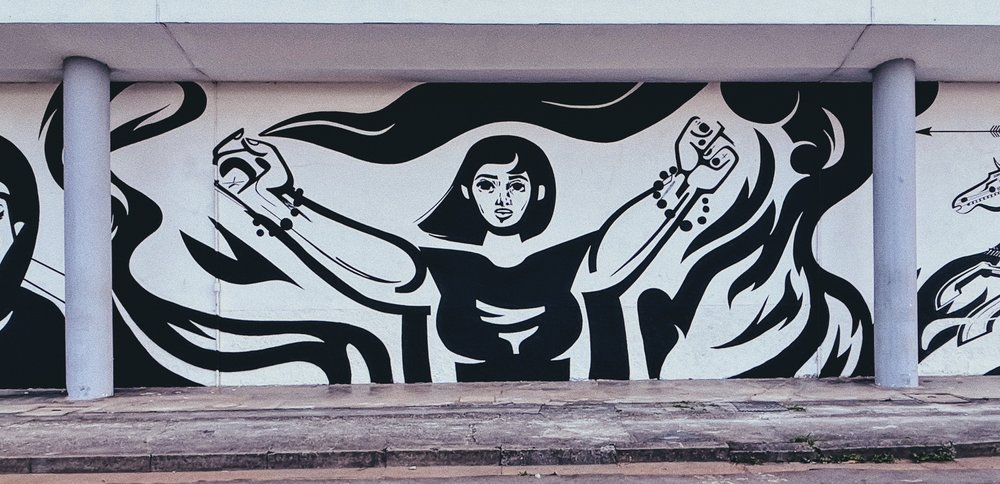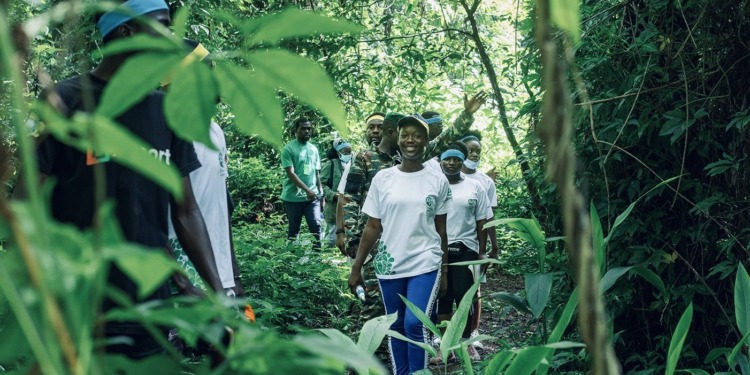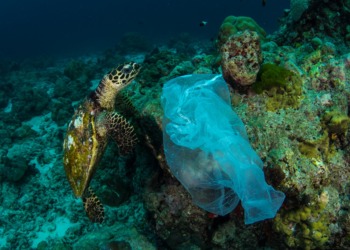The official theme for Earth Day 2023 is Invest in Our Planet. It’s a proposition that resonates in a multitude of ways — could it mean supporting technological development, planting trees, or perhaps modifying lifestyles? In the broadest sense of the idea –— investments that are practical, personal, or emotional too rather than just financial — it’s a sentiment and a call to action that has long been important to us at Evoca Foundation.
I founded Evoca Foundation in 2018 because although I shared with many a vision of a world that is prosperous, sustainable, and equitable for all, it seemed essential that approaches to driving change should, at their core, be holistic and systemic.
At Evoca Foundation, our model for cultivating progress is built around principles of investing, advocating, accelerating, and responding. Most critically of all, however, we operate with an awareness that climate-related issues cannot be treated or even understood in isolation. Our projects address climate action, education, and supporting women and girls, with these themes intersecting and given shifting weight throughout our full program of work.
The effects of climate change are not felt equally across the world. The environmental challenges we face present an existential crisis, and when parts of our world are already bearing the brunt, it’s essential that we share the responsibility. They impact disadvantaged communities the hardest, despite the fact they’re often less likely to have contributed to our rising CO2 emissions. These groups frequently have fewer resources or lack infrastructural resilience, so when they’re hit hard, they struggle to bounce back.
The climate crisis also takes existing disparities and dials them up, which is why women and girls are especially vulnerable. They are much more likely to be affected by climate-related disasters, for example, 80% of people displaced by the climate crisis are women and girls and are much more likely than boys to be taken out of school, meaning they miss out on learning essential skills. Women and girls are especially vulnerable to systemic violence and exploitation, and in times of crisis, these issues are amplified. We’re conscious that although women function as critical pillars of our communities, in many settings their potential for creativity and innovation goes unsupported. If all women and girls could access their right to complete their education, develop skills and build confidence, the world would have a hugely strengthened cohort of minds participating in the decision-making that shapes the future of this planet.
It’s this potential scope for progress in untapped creativity that inspired me to launch EvocaFoundation’s creative arm, Evoca Pictures, in 2021. Commissioning, funding, and producing films and visual art, Evoca Pictures aims to provide activists and advocates with strategic insight, expertise, and expansive networks to instill hope and drive visible impact. By mobilizing fresh perspectives, engaging diverse audiences, and disrupting popular culture, the storytellers at Evoca Pictures work to convey some of the most challenging messages of our time, delivering powerful advocacy campaigns which amplify voices at the forefront of gender inequality and the climate crisis.
On Earth Day this year, through animated illustrations from Kiana Naghshineh, we’re telling the story of Omid, the male Siberian Crane whose name means ‘hope’ in Farsi. We’re highlighting cranes’ status as endangered and aiming to engage and inspire audiences to ‘Invest in Our Planet’ in line with the 2023 theme.
Hope & Wish
Omid (امید) is a male Siberian Crane. His name means hope.
Years and years ago, he met his female partner, Arezoo (آرزو). Her name means wish.
Most cranes partner for life. They are monogamous birds with elaborate courtship rituals involving dances and calls. pic.twitter.com/n96Ux8fogI
— Evoca Foundation (@evocafoundation) April 18, 2023
As most cranes do, being a monogamous species, Omid established a solid bond when he met his female partner Arezoo (meaning ‘wish’). In 2007, Omid and Arezoo made their first journey together. They chose Iran as their wintering ground and traveled from Siberia to spend four months in the richly biodiverse Fereydunkenar wetland on the Caspian Sea in northern Iran. The following year in 2008, the bird watchers and nature lovers of Iran prepared to welcome Omid and Arezoo once more. But they never arrived.
Arezoo had disappeared, suspected to have been shot down by poachers. In her absence, Omid, now the only remaining Siberian white Crane of the Western population, disappeared too and did not make the journey to Iran.
Devastation & Loss
The following year, the bird watchers and nature-lovers of Iran prepared to welcome Omid and Arezoo once more. But they never arrived. pic.twitter.com/Dp9Pixm6oT
— Evoca Foundation (@evocafoundation) April 19, 2023
RELATED ARTICLES: Deep-Sea Mining: Disaster for the Planet or Sustainable Solution? | Unsustainable Water Usage of Urban Elites Fuels City Water Scarcity, Study Finds | Is Recycling as Green as We Think It Is? | Saugeen First Nation Wins a Centuries-Long Territorial Dispute Over Iconic Ontario Beach | Plants Make Noises When They’re Thirsty or Being Cut, Science Proves |
But the following year, Omid appeared once more, and from then onwards returned annually, making the 6,000 km journey alone from Siberia to settle among the animals and vegetation by the Capsian Sea every winter. It has been more than fourteen years since Omid first embarked on his journey alone: he has become a symbol of hope, lost love, and reminiscence for the Iranian people and the many international birdwatchers who follow his story closely.
This year, Iran’s Department of Environment introduced Omid to Roya (meaning ‘dream’). Roya is a young female Siberian crane from the Cracid & Crane Breeding and Conservation Centre (CBCC) in Belgium. Environmental experts hope Omid and Roya will establish themselves as mates, and return to Iran together next winter.
By fostering a shared sense of connection with Omid’s emotive story, and by capturing the beauty and sadness of Omid’s loss and loyalty, we hope to awaken curiosity and commitment in viewers, encouraging them to explore how they themselves can protect the health of our planet.
Last Earth Day in 2022, we took a similarly emotive approach, examining the impact that climate change has on young people’s mental health: a series of illustrations looking at collaboration, action, climate resiliency vs climate doomism, the significance of marginalized voices and far-reaching discussions as powerful antidotes and solutions to climate anxiety.

This theme was interrogated more thoroughly in Overheated, Evoca Pictures’ most ambitious and large-scale production to date, which came together through a global network of collaborators & partners across the world. Created by Evoca Foundation in partnership with Support and Feed and The Soliman Foundation, the film provides a breathtaking commentary on the climate crisis. It’s a 38-minute kaleidoscopic journey that propels us through the minds of some of the world’s most prominent figures in music, fashion, and climate activism. Directed by Yassa Khan and featuring appearances from Billie Eilish, Maggie Baird, Vivienne Westwood, Yungblud, and Vanessa Nakate, the film displays vulnerability and openness as each participant confronts their hopes, struggles, and fears in the face of a critically overheating planet. Central to the film are the voices who represent the frontlines of climate change: Daniella Ingabire from Burundi, and the Waorani tribe from the Amazon rainforest & the Sámi people of Sápmi, who speak of the startling loss of indigenous knowledge and habitats.
Nobody has all the answers we need to address the climate crisis, but population groups and activists on the very frontlines of the challenge are best placed to understand the issues we’re facing and the viable solutions in which we should be investing. To this end, in 2023 Evoca will continue to work with grassroots organizations and cultivate longstanding relationships with communities who understand the landscapes we must protect.
We’ll also be prioritizing women and girls in a bid to mitigate the exacerbation of existing inequalities and maximize the resource and creativity that is brought to global climate action efforts.
And finally, through projects all over the world, we’ll be supporting initiatives around climate education, which presents the most sustainable tool available to us in our efforts to adapt and grow during this critical period.
Editor’s Note: The opinions expressed here by the authors are their own, not those of Impakter.com — In the Featured Photo: Evoca Foundation supports Green Ivory, a Côte d’Ivoire-based NGO, that recognize the essential role that the next generation will play in the fate of the country’s remaining forests. All Photo Credit: Evoca Foundation.










